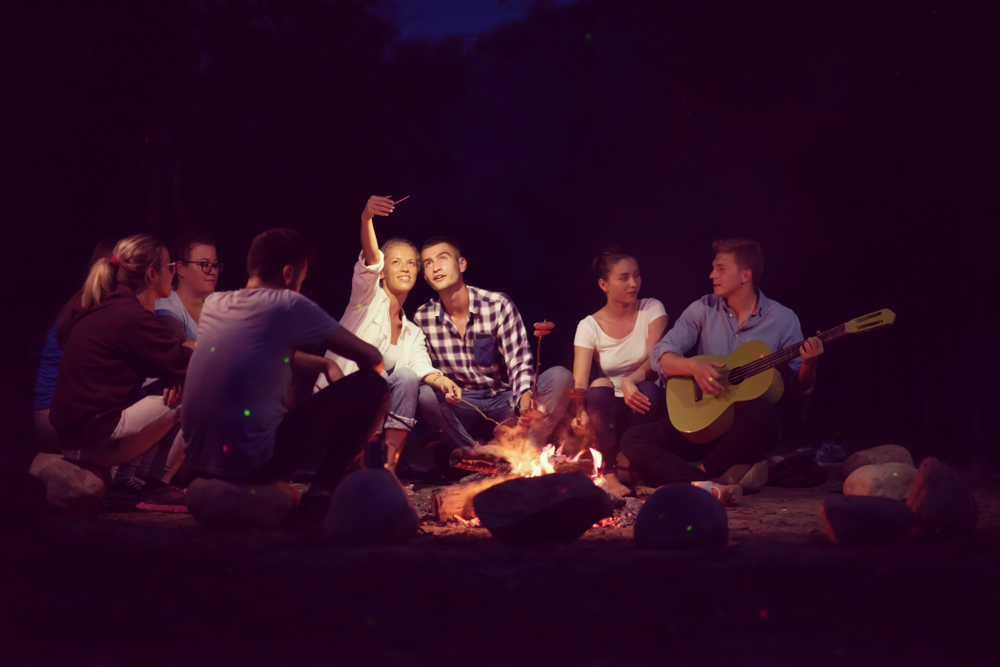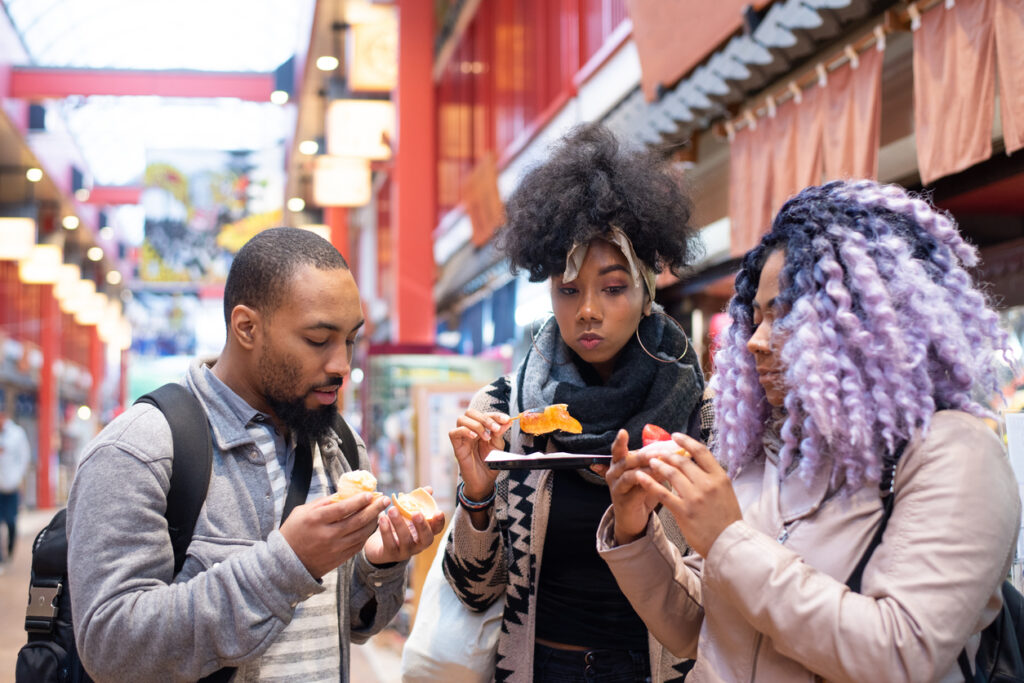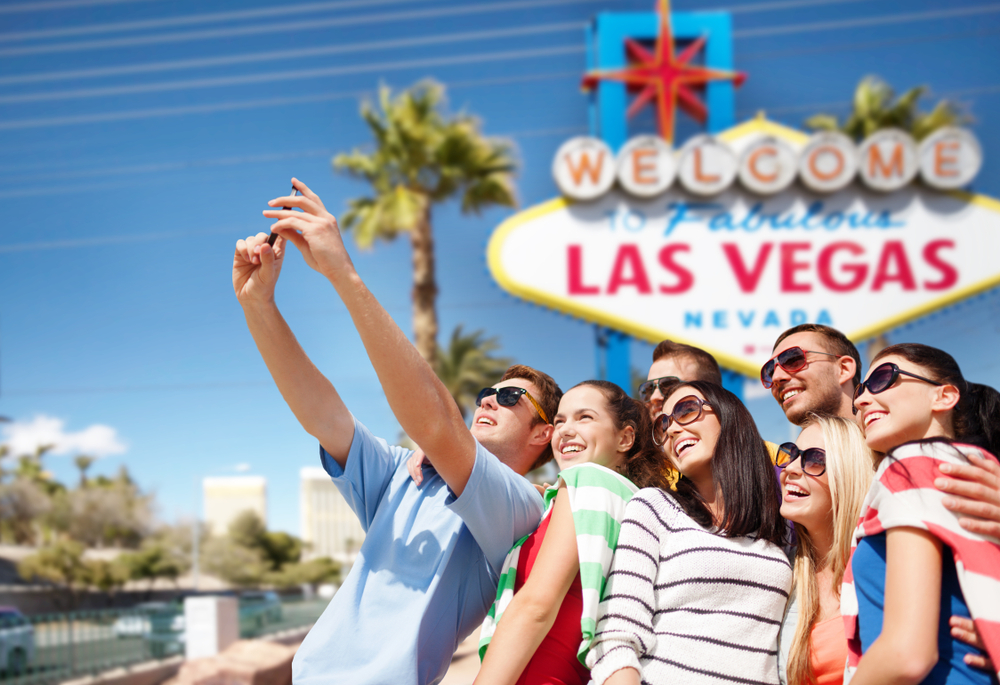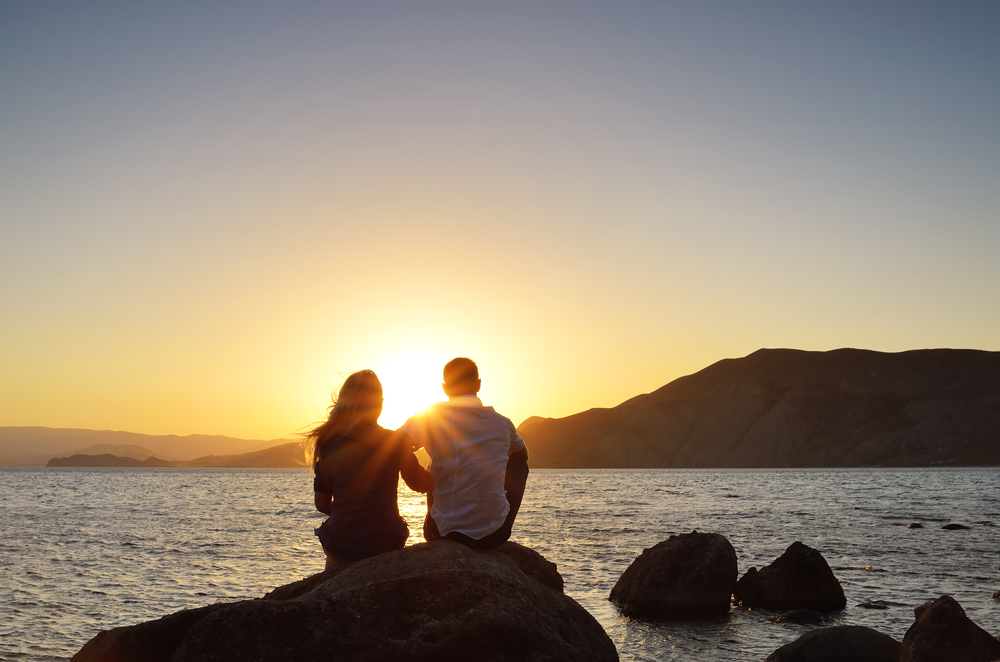Traveling with couple friends can turn into a dream vacation—or a total disaster.

Traveling with another couple can feel like a grown-up adventure that’s part buddy comedy, part reality show. The idea of sharing meals, sights, and silly moments can be magnetic. But the truth? You’re testing your friendship in a pressure cooker of shared decisions, tight schedules, and possibly very different travel styles. One couple’s idea of fun might be the other’s worst nightmare.
Before you book those matching villas or group tours, it’s worth thinking through how travel can amplify both the highs and the lows in a friendship. Personal quirks, unspoken expectations, and even small annoyances can turn into dealbreakers once you’re on the road together. The experience can bring you all closer—or highlight cracks you didn’t even know were there. Here’s a breakdown of the most common pros and cons that come with hitting the road as a traveling foursome.
1. You create shared memories that last a lifetime.

Traveling together often results in those spontaneous, hilarious, or awe-inspiring moments you still talk about years later. Like that night in Paris when the four of you got lost but stumbled into an incredible little wine bar? Those moments create a bond that feels stronger than any ordinary dinner party back home. It’s not just about sightseeing—it’s about experiencing something brand new, side by side.
Those memories give you shared reference points that strengthen your friendship. Even when you’re back to your everyday lives, you’ll have that secret language of inside jokes and unforgettable mishaps. You’ll remember the bad espresso in Rome or the all-night karaoke in Tokyo. These are the moments that make it feel like your friendship is not just real, but solid, according to Dr. Charlotte Russell of The Travel Psychologist. It’s a big win—when it works.
2. Different travel styles can cause serious tension.

One couple is up at 6 a.m. with a full itinerary, the other wants to sleep in and wander aimlessly. That’s a recipe for frustration. You may start off being polite, but by day three, someone’s quietly fuming. It’s not just about schedules—it’s about expectations, energy levels, and how you define a good time.
Without clear communication, differences like this can feel personal, as stated by Valerie Wheatle at Wandering Wheatleys. You might feel judged for being too laid-back or too structured. And the more time you spend together, the more those little habits start to grate. If you’re not aligned—or at least respectful—it can feel like you’re stuck in a group project you didn’t sign up for.
3. You get built-in companionship and never feel lonely.

One of the nicest things about traveling with another couple is the easy camaraderie. You’ve got company for dinner, someone to split a cab with, and people to laugh with when plans go sideways. It’s less pressure on you and your partner to constantly entertain each other, especially on longer trips.
There’s also comfort in numbers. You feel safer in new places and more confident venturing into unknown neighborhoods or trying things you might hesitate to do alone. Even a boring travel day feels better when you’re in it together, as reported by Tammi Kaeberlein of Wander Healthy. If you click well, it can feel like the ideal setup.
4. Money can get awkward fast.

Budget mismatches are a landmine. Maybe one couple is all about five-star splurges, while the other is counting pennies and looking for hostels. Suddenly every meal, activity, or even choice of transportation becomes a negotiation—or a source of quiet resentment. Nobody wants to talk about money, but it’s all over the itinerary.
Even when you try to split things fairly, it can still get weird. Who picked up the last dinner? Should we go Dutch or rotate? If you’re not upfront about budgets from the beginning, one couple can end up feeling pressured or guilty. And that tension tends to show up in passive-aggressive ways.
5. You discover new sides of your friends.

Travel strips away the usual layers. You’re seeing your friends without their polished social personas, and they’re seeing you the same way. That’s not always a bad thing. It can lead to deeper connection, more vulnerability, and a sense of truly knowing each other beyond brunches and backyard hangouts.
But the flip side? You might learn things you wish you hadn’t. Maybe your friend snaps at waiters or micromanages their partner. Maybe you realize you don’t align on values you thought you shared. It can be enlightening—or disheartening—but it’s definitely revealing.
6. Conflict resolution becomes unavoidable.

At home, it’s easy to avoid conflict. You go to your own house, cool off, and move on. On a trip, you’re in close quarters with no easy exit. If something goes sideways, it either gets addressed or it festers. There’s no escaping awkward tension over breakfast or side-eyes during a group tour.
This can be good if you’re all mature and open to hashing things out. But if anyone is passive-aggressive, reactive, or just terrible at communicating, those traits come out fast. The ability—or inability—to handle conflict together becomes very clear, very quickly.
7. You learn how well your partners mesh.

It’s one thing to get along as couples in short bursts, but traveling is the ultimate compatibility test. Are both partners equally social? Do they balance each other out or enable each other’s bad moods? You’ll notice all the little dynamics you might miss in a typical double-date setting.
This can actually be really fun if your rhythms align. Maybe the guys bond over history museums and the women share a love for morning yoga. When it clicks, it’s magic. When it doesn’t, it can feel like you’re traveling with two people you’d never choose as friends on their own.
8. Decision-making can become exhausting.

Every single choice—where to eat, what to do, how long to stay—suddenly requires four-way consensus. That might sound easy in theory, but in reality, it often leads to indecision, compromise fatigue, or someone silently giving in while quietly stewing.
One couple might dominate the planning while the other checks out entirely, which only breeds more tension. Unless everyone’s willing to speak up and stay flexible, decision-making becomes a daily grind. Sometimes, having too many voices is worse than not having enough.
9. You might end up playing therapist.

If the other couple starts bickering, it’s awkward fast. Are you supposed to intervene? Ignore it? Diffuse the tension with jokes? And if the fighting escalates, the whole trip can feel like an extended counseling session you never signed up for. It puts strain on your own relationship, too.
Even low-key disagreements can sour the vibe. You start walking on eggshells, wondering if dinner will be another awkward affair. If their drama becomes the trip’s emotional centerpiece, you may leave more drained than refreshed—and reconsider future travel plans with them.
10. You save money by splitting costs.

There’s a practical upside to traveling in a group: cost efficiency. You can split rental cars, vacation homes, and group tours. That can make certain experiences more affordable—or even possible—when they wouldn’t be if it were just the two of you.
Group discounts can stretch your budget without sacrificing comfort. And if you’re all transparent and organized about expenses, it makes financial sense to travel together. The key is mutual understanding and no surprises. When done right, it’s a win-win.
11. Personal routines may clash.

You like quiet mornings and coffee in peace. They blast music at 7 a.m. and hit the beach before breakfast. Small things like sleep schedules, eating habits, or even shower routines can become unexpectedly annoying. Travel tends to magnify the little stuff you’d usually overlook.
Without space to recharge, even minor differences can cause tension. It’s not always about big personality clashes—it’s the daily rhythms that can slowly wear down your tolerance. And if no one’s willing to adapt, the friction builds fast.
12. Your friendship will either deepen—or fall apart.

Travel is a pressure test. If your friendship is strong, it’ll likely come out even stronger. You’ve shared challenges, laughs, and a whole string of ridiculous situations. That kind of experience leaves a mark. You’ll have stories, inside jokes, and a deeper understanding of each other.
But if there are cracks? They’ll show. Some friendships just don’t survive the intensity of travel. That doesn’t mean they were fake—it just means they thrived under different conditions. It’s not a failure, just a reality check. Traveling together reveals the real relationship underneath the surface.
